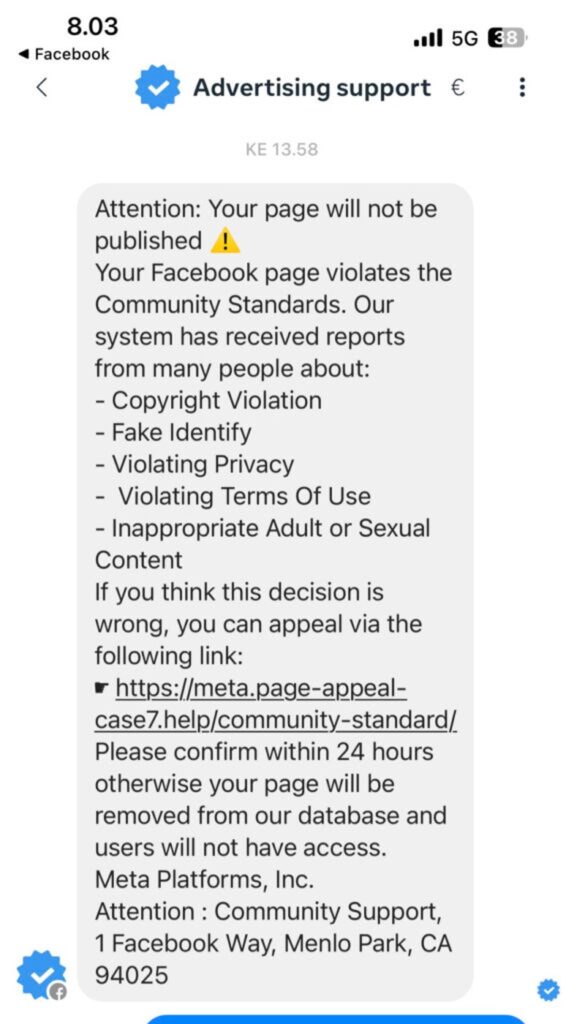YRITTÄJÄ, tule mukaan omiesi pariin! Liity Yrittäjiin.

Watch out for fraudulent Facebook Messenger business messages
Scam messages may threaten closure of a Facebook page.
If you administer a Facebook business page, you may have received an authentic looking message saying your page has violated Facebook rules and threatening to close or suspend your page within a certain period.
This is usually a scam which has been masked to look genuine. The message may contain the logo and address of parent company Meta to make the scam look more credible. The sender could also appear as “Advertising support”.
The messages often contain links leading to phishing sites. In the worst case, the scammers acquire usernames and passwords to your Facebook page, putting your business at risk of significant reputational damage. Criminals can use this information in banking scams and for other criminal purposes.
“In addition to the reputational damage, hackers could demand a ransom to restore your account, which could cost your business dearly,” the writer Petteri Järvinen says.

Järvinen advises businesses to document such messages before deleting them.
“If a business owner gets a Messenger message like this, they should take a screenshot or a shot of it with another phone. They should then report the message to Meta. They probably want to be told about it, because the messages harm business customers’ data security,” Järvinen says.
If more than one person uses the same Facebook business account, the message should be deleted after it is reported to prevent anyone from accidentally leaking information to scammers.
Check the scam by googling
Järvinen says that Meta does not close down Facebook pages permanently because of a single report.
“If messages like these really were from Meta, they would offer the business a chance to respond, react to any breaches, and correct its actions.”
Scammers have tried to make their messages more credible by demanding page administrators send the same photo as used in their official ID.
“Scams like these have got a lot more credible, because they rarely contain the spelling mistakes of years gone by. Scammers might use Finnish helpers when needed.”
Scammers have tried to make their messages more credible by demanding page administrators send the same photo as used in their official ID.
Järvinen says that social media channels are very important to a lot of business owners nowadays. Their whole business might even depend on them.
“If you think you’ve got a scam message, you should google the key phrases in it. That usually tells you for sure whether the message is a scam.”
Are you a Suomen Yrittäjät member yet? Read about member benefits and advantages

Pauli Reinikainen
pauli.reinikainen@yrittajat.fi







